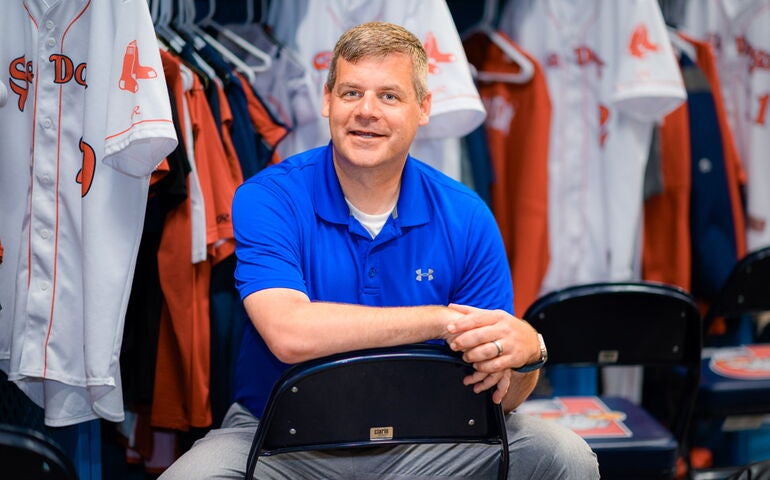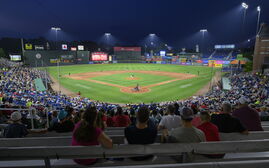Processing Your Payment
Please do not leave this page until complete. This can take a few moments.
- News
-
Editions
-
- Lists
-
Viewpoints
-
Our Events
-
Event Info
- Women's Leadership Forum 2025
- On the Road with Mainebiz in Bethel
- Health Care Forum 2025
- On The Road with Mainebiz in Greenville
- On The Road with Mainebiz in Waterville
- Small Business Forum 2025
- Outstanding Women in Business Reception 2025
- On The Road with Mainebiz in Bath
- 60 Ideas in 60 Minutes Portland 2025
- 40 Under 40 Awards Reception 2025
- On The Road with Mainebiz in Lewiston / Auburn
- 60 Ideas in 60 Minutes Bangor 2025
Award Honorees
- 2025 Business Leaders of the Year
- 2024 Women to Watch Honorees
- 2024 Business Leaders of the Year
- 2023 NextUp: 40 Under 40 Honorees
- 2023 Women to Watch Honorees
- 2023 Business Leaders of the Year
- 2022 NextUp: 40 Under 40 Honorees
- 2022 Women to Watch Honorees
- 2022 Business Leaders of the Year
-
-
Calendar
-
Biz Marketplace
- News
- Editions
- Lists
- Viewpoints
-
Our Events
Event Info
- View all Events
- Women's Leadership Forum 2025
- On the Road with Mainebiz in Bethel
- Health Care Forum 2025
- On The Road with Mainebiz in Greenville
- On The Road with Mainebiz in Waterville
- + More
Award Honorees
- 2025 Business Leaders of the Year
- 2024 Women to Watch Honorees
- 2024 Business Leaders of the Year
- 2023 NextUp: 40 Under 40 Honorees
- 2023 Women to Watch Honorees
- 2023 Business Leaders of the Year
- + More
- 2022 NextUp: 40 Under 40 Honorees
- 2022 Women to Watch Honorees
- 2022 Business Leaders of the Year
- Nomination Forms
- Calendar
- Biz Marketplace
On the Record: Portland Sea Dogs GM lays out game plan for Hadlock Field upgrades, leasing
 Photo / Jim Neuger
Geoff Iacuessa, president and general manager of the Portland Sea Dogs, photographed inside the team’s clubhouse at Hadlock Field.
Photo / Jim Neuger
Geoff Iacuessa, president and general manager of the Portland Sea Dogs, photographed inside the team’s clubhouse at Hadlock Field.
For Geoff Iacuessa, president and general manager of the Portland Sea Dogs baseball team, rainy days are the least favorite part of a job he’s held since September 2018.
Iacuessa, a Bay State native who earned a degree in sports management from the University of Massachusetts at Amherst, has spent his career at the Sea Dogs, starting as an intern in 2001. Today, he oversees a full-time staff of 22, along with 300 game-day employees during baseball season, from 14-year-olds working their first jobs to retirees and teachers.
Mainebiz caught up with him on a quiet day at Hadlock Field — though the ticket office was abuzz with activity as uniforms were being prepped in the clubhouse while the team was in Pennsylvania to play the Altoona Curve. Iacuessa shared a behind-the-scenes look at what it’s like to run a Double-A baseball team, his outlook for the season and planned stadium upgrades.
Mainebiz: What’s the hardest part of running a baseball team today?
Geoff Iacuessa: Rainy days are what I enjoy the least. We do so much planning and preparing for everything that we do, and then to have a rainy day happen certainly throws a wrench into what we’re trying to do. You have to react accordingly.
From a day-to-day standpoint, we went through COVID in 2020, which was a challenge for everybody, and then after that season Major League Baseball took over the governance of Minor League Baseball. That’s a long story, but part of that became new stadium requirements. Every team has to meet the requirements by opening day of 2025, and we’re on track to get compliant.
MB: What upgrades are most needed, and what happens next?
GI: We’ve been in the planning process for quite a while, just knowing that it was coming up. The state was great to work with as far as that tax credit goes.
We’re also currently in the final stages of negotiating a lease extension with the city of Portland — a 15-year extension with a five-year option. Our lease goes through 2028, and we need to invest about $10 million into the ballpark to get it into Major League baseball compliance. The $10 million is the 20% tax break spread out over 15 years, which will run concurrent with the lease extension.
We’re hoping to be able to break ground sometime late summer to have that project done for opening day next year.
MB: What does the project entail?
GI: We’re building a whole new locker room area. Right now, our home clubhouse is in right field, and our visiting clubhouse is in the basement of the Portland Expo. The visiting clubhouse is what’s not in compliance, so we will be building a new clubhouse in the left field area, and then the visiting team will go to our current home clubhouse and the home team will go to the new clubhouse in left field.
MB: How long will it take to build?
GI: We’re guessing that that if we break ground in August, it will be done in March. The other major piece is redoing the fields as well, the grades and things like that.
MB: During the debate when there was some opposition to giving the tax credits, did the thought ever come up to move the team to another city or state?
GI: From my seat, it was full speed ahead in getting that taken care of. It would never have been a Diamond Baseball Holdings or a Portland Sea Dogs decision to move, it would have been a Major League Baseball decision.
Certainly, in the back of my mind it was the concern, because in 2021 there were 43 cities that lost their teams as part of Major League Baseball taking it over, and there were many of those cities that would love to get teams back — they understand the economic impact and the social impact of having a team.
In the back of my mind, I was concerned because I know there’s a lot of cities in the Northeast that do want to get a team back and are preparing for that possibility. My sole focus was to make sure that we were successful with the state and city and being able to keep the Sea Dogs in Portland.
MB: As a Double-A affiliate team with the players frequently getting called up by Triple-A teams or the Red Sox, how do you maintain team and fan spirit?
GI: I think it’s a great thing for our fans to be able to see the players on their way up — have success here and continue to go on to Worcester (Mass.) and the Red Sox and have great success there as well. We’ve seen a lot of that through the years. You also see it the other way, with the Major League rehabs. We never want to see a Major League player get hurt, but if they do, they’ll come back through on a rehab appearance, which is a great thing for our fans.
MB: When was the last time you raised food or ticket prices?
GI: We did do a slight raise this year. Right now, obviously the cost of everything that you do has gone up considerably especially over the last five years. It’s something that we take very seriously. We’ve always aways wanted the experience of being able to come to the ballpark accessible.
That was something that started with Dan Burke, our original owner, and Charlie Eshbach, our original president and GM. It’s something that we don’t take lightly if we have to adjust pricing, but it is something that we look at every year.
MB: Your two female broadcasters are industry trailblazers. Do you think we’ll see more diversity in management?
GI: No doubt! There’s more and more folks getting into it, and getting those great opportunities, which has been a great thing to see.
MB: What do you do on game day?
GI: Anything and everything. Things always pop up, and that’s what keeps it challenging, that’s what I enjoy.













0 Comments